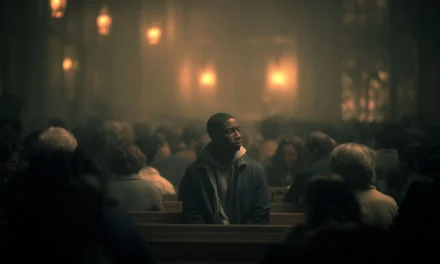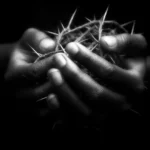The first Sunday away is heavier than most people realize.
Even if you weren’t formally removed. Even if no one said the words. Even if you left quietly, telling yourself it was time. That first Sunday hits harder than expected.
You wake up and wonder if you should still get ready—out of habit, out of guilt, out of hope. But there’s nowhere that feels safe, familiar, or untainted. The place you’ve gone every week is now off-limits. Not by policy, but by pain. And every other church feels like foreign soil.
You scroll through your phone and stop on the livestream, pausing to wonder who’s there. You see who’s still showing up. Who’s still serving. Who never reached out when you stopped coming. It stings.
You were part of it—until you weren’t. The rhythm of Sunday morning has been disrupted, but your heart still beats in time with a routine you can no longer follow. You miss the songs, even though they hurt. You miss communion, even though you felt unseen. You miss people who might not miss you back.
This is the moment many people second-guess everything. Not because they made the wrong choice, but because grief always sounds like doubt at first.
Elijah Didn’t Leave God—He Left the Weight
Elijah had just stood against the prophets of Baal. He had faced down corrupt leadership. Fire fell. Truth was revealed. But once the moment passed, so did his strength.
He fled into the wilderness, not because he was faithless, but because he was tired. Alone. Disoriented.
“It is enough now, O Lord. Take my life, for I am no better than my fathers.” — 1 Kings 19:4
He found a broom tree, laid down, and gave up.
Many who walk away from church feel this same release—like all the energy it took to stay finally crumbled. The Sundays they pushed through, the warnings they ignored, the quiet exclusions they endured—it all catches up in one breathless morning. There’s no more pretending. No more performance. Just an ache in the silence.
But God did not leave Elijah under the broom tree.
Then as he lay and slept under a broom tree, suddenly an angel touched him, and said to him, “Arise and eat.” 1 Kings 19:5 NKJV
He didn’t scold him for being weak. He didn’t ask him why he was so dramatic. He sent an angel with warm bread and cool water. He let him sleep. He came gently. And when Elijah was ready, God spoke—not in fire or wind or earthquake—but in a whisper.
If you’re experiencing your first Sunday away, this might be your broom tree. You might feel done. Spent. Alone. But heaven isn’t disappointed in you. God doesn’t need you to prove anything. He’s not waiting to scold you for missing church. He’s meeting you where you are. With silence that speaks and presence that heals.
There’s Grace at the Broom Tree
Elijah’s time under the broom tree wasn’t just a breakdown. It was a transition. He didn’t stay in the wilderness forever. After the whisper, God gave him new direction, new clarity, and even a new companion in Elisha. The exile became the hinge point—not of despair, but of something deeper.
The same can happen to you.
That first Sunday away might feel like a loss of identity. You don’t know who you are without the role, the rhythm, the familiarity. But what if this is the place where God reintroduces Himself to you? Not through noise or platform—but through whisper, provision, and new vision.
Spiritual exile isn’t just about what you’re leaving. It’s about what you’re being invited into next.
Here are a few small, grounded ways to wait through the in-between:
- Let yourself grieve without spiritualizing it away. Write a letter you never send. Light a candle. Journal your loss like it’s real—because it is.
- Create a new Sunday rhythm. Don’t fill the whole gap at once. Choose one nourishing thing: a walk, a psalm, a slow breakfast with prayer.
- Reach out to someone safe. Not to fix it—but to be seen. Even one text that says, “Today was hard,” can remind you you’re not invisible.
- Practice listening. You’ve heard enough opinions. This is the season for whispers. Ask God a question you haven’t dared to ask—and sit with the silence.
- Watch for the next assignment. Elijah didn’t go back to business as usual. He moved forward with fresh clarity. You will too—but not by force. By timing.
The quiet might feel empty, but it can also become fertile. The ache might feel like an end, but it might be the beginning of something more honest, more anchored, more alive.
You don’t have to rush to replace what you lost. You don’t have to build something new tomorrow. But you can start by naming this moment for what it is: not abandonment, but holy transition.
And as you rest in this in-between place, you may begin to look back on how it all started. Not with anger. Not with bitterness. But with a slow realization: it wasn’t leaving that unraveled things—it was the moment you started asking honest questions.
The Break Point Collection
In the next article, we’ll revisit that turning point and reflect on What I Wish I Knew Before I Asked Questions—because curiosity is sacred, but in some communities, it’s treated like rebellion.
Devotional Song
Listen before, during and after reading the devotional.
`












Recent Comments